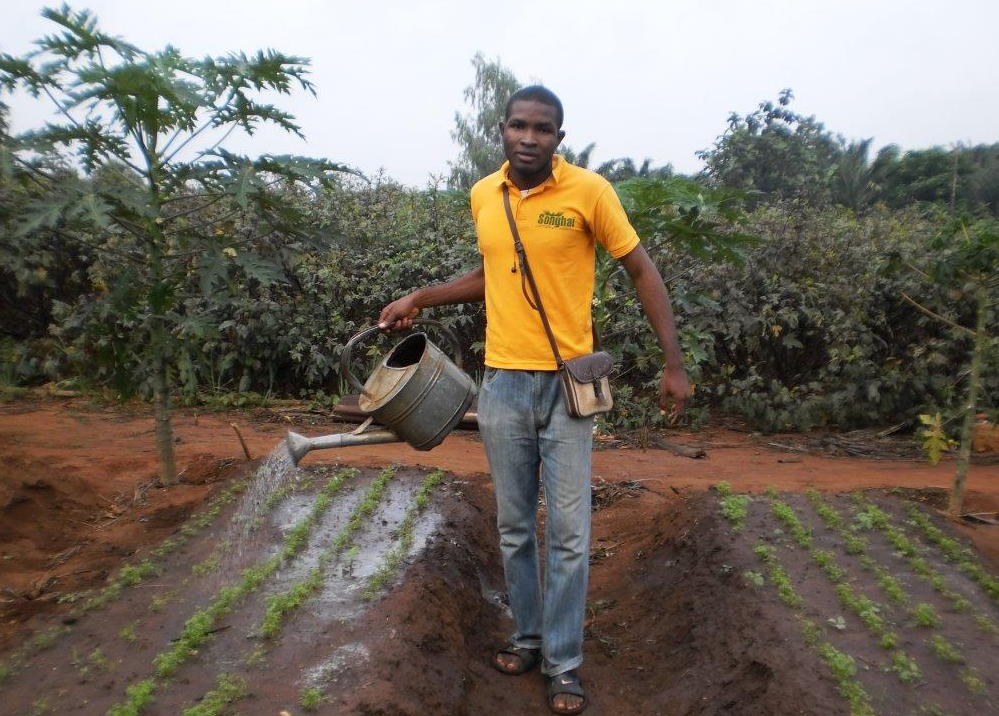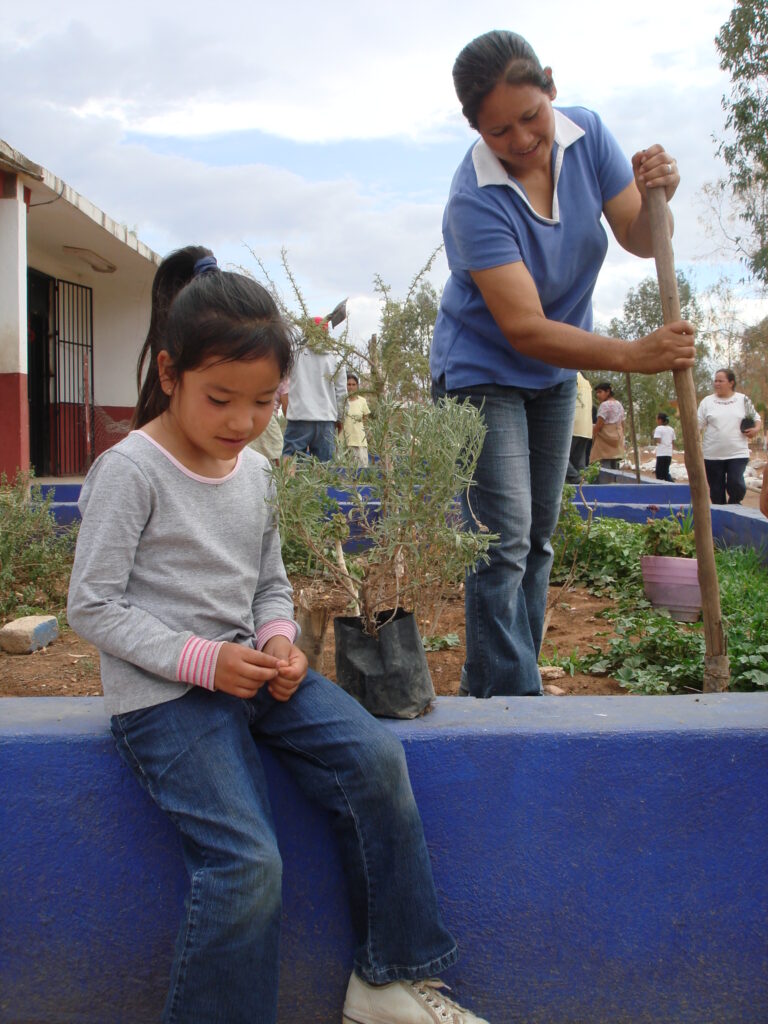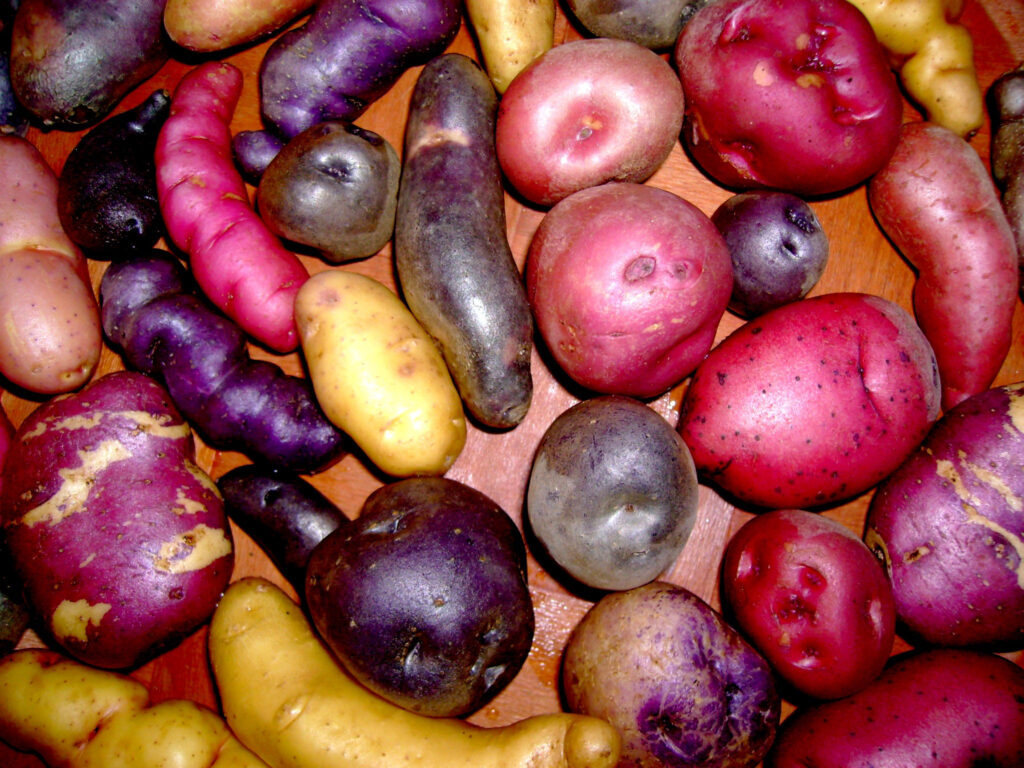Nigeria, the “Giant of Africa”, has the continent’s largest population and economy, now worth over $500 billion thanks in large part to its oil reserves. This wealth, however, has not stopped 60% of Nigerians living in extreme poverty, nor youth unemployment being close to 80%. Peter Obiorah, president of the De Parach Multipurpose Co-operative Society, thinks agriculture can offer answers to the country’s problems.
“With agriculture, poverty and hunger will be a thing of the past among Nigerian youths,” he says. “Agriculture will reduce mass youth unemployment and involvement in crime, giving Nigerian youths opportunities for success and greatness, more than in the oil sector. With agriculture, they can discover their potential and preserve our country and its environment.”
Unfortunately, the farming sector in Nigeria faces a number of deep-rooted challenges, not least an image problem. “Young people feel that farming is for the dropouts or ne’er-do-wells in society and a profession for poor people,” says Peter. “Farmers are believed to be low class. Young people prefer white-collar jobs where they can dress impressively.” On top of this are financing issues, land tenure problems, substandard infrastructure and transport, a lack of good storage and processing facilities, rampant smuggling, inadequate tools and machinery, little training, ill-equipped extension workers, poor marketing channels and expensive inputs, like improved seeds and fertilizers.
Though still small, the De Parach cooperative is working to address as many of these issues as possible. Founded in 2012, the cooperative was fully registered in March 2013, and currently has 255 members, including 137 young people who do not have the economic stability to contribute financially to the cooperative but who are given free membership. The cooperative’s mission is to promote agriculture among the youth of Nigeria, in order to boost their economic status and self-reliance, and also to assist women with little or no income, especially single mothers and widows, through its empowerment programmes.
The main areas of activity are education (running training sessions and business management programmes), credit access (providing small loans to help members start businesses) and marketing (helping members gain market knowledge and sell their products). Since it was formed, among its many achievements, De Parach has helped young people and single mothers establish poultry farms, attend agricultural college, gain practical ICT skills and access agricultural inputs at affordable prices.
Peter tells the story of one of the cooperative’s members, Mrs Nnenna Ann Eguatu, who was widowed when her husband, a bus driver, was killed in a road accident in January 2012. She was left to bring up their two children, aged 4 and 6, on her own. “After the burial of her late husband, the situation became very hard,” he says. “She continued struggling, selling water sachets along the street in order to feed herself and her two kids, who weren’t attending school. Then in May 2013 she came to our office. She was able to register as a member of the cooperative but was not able to buy any share capital which would have enabled her to access a loan.”
“But when she told us her story, we had no option but to help her and her kids. Due to our financial instability, we were only able to raise 20,000 naira ($122) to lend her. She started initally by buying cassava from farmers and processing it into garri to sell. Then later she began to sell yam, dried cassava chips, yellow and white maize flour and wheat flour. Today she is doing very well in the business, and her two kids are now in school.”
Funding is the cooperative’s biggest challenge. “Since the cooperative was founded, we have not received any funding,” says Peter. Efforts to attract funding have ended in disappointment, and the interest rates on loans from commercial banks are too high. So far all the funding has come from member contributions. But, says Peter, “even though we have a very weak financial base from which to boost our activities and have been frustrated by our inability to secure funds, whenever I see Mrs Eguatu and the others who have received similar help from us, especially youths, I always feel fulfilled.”
Story originally published in 2014 World Co-operative Monitor.



